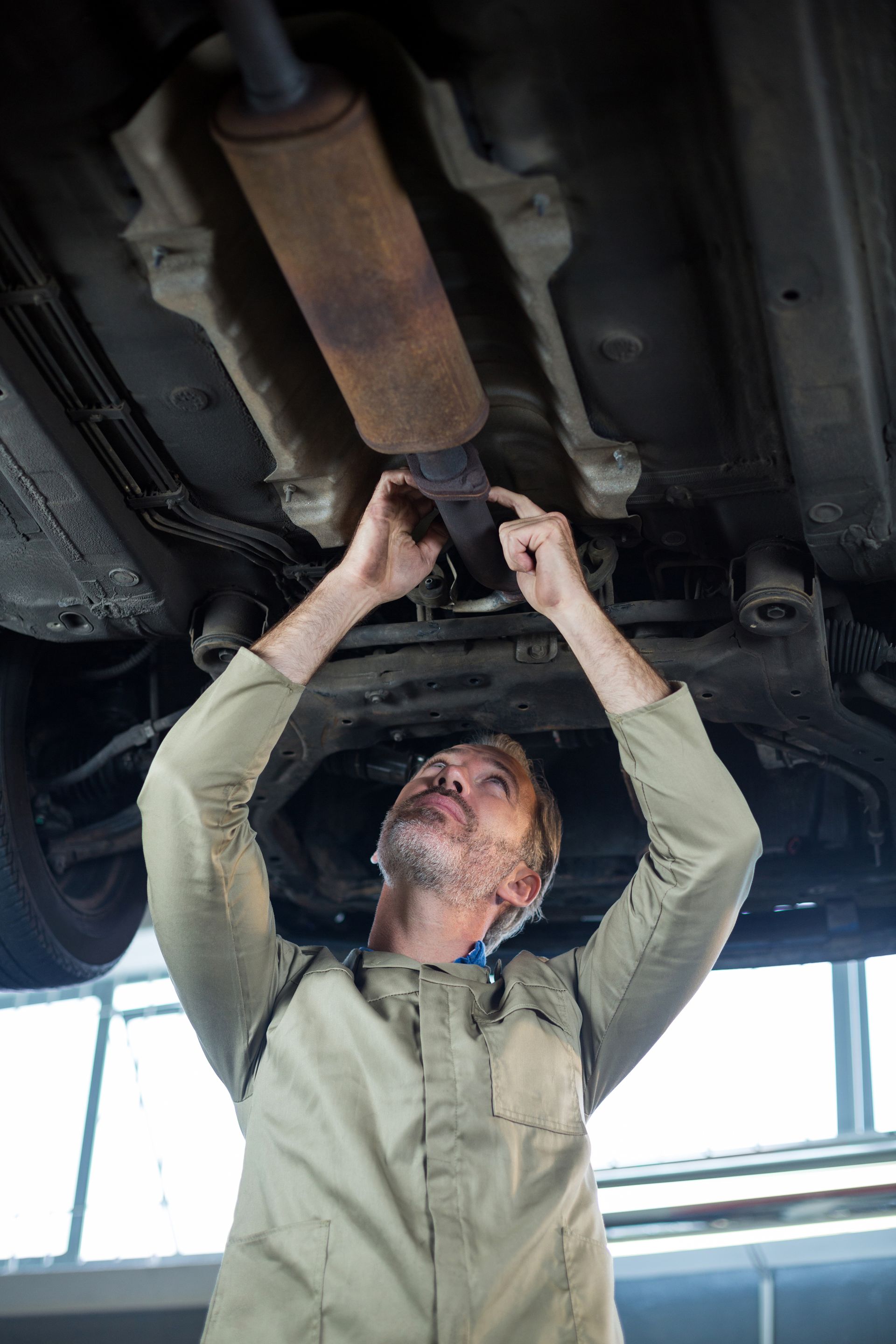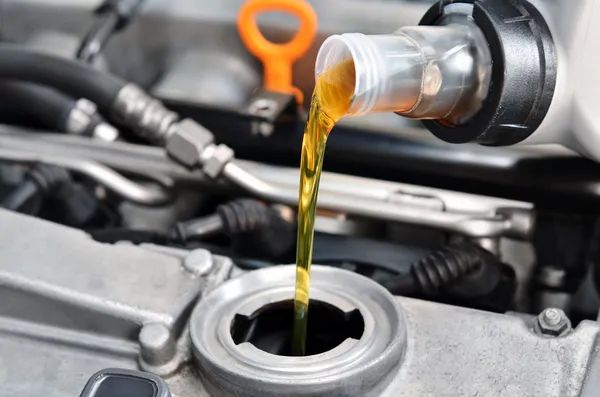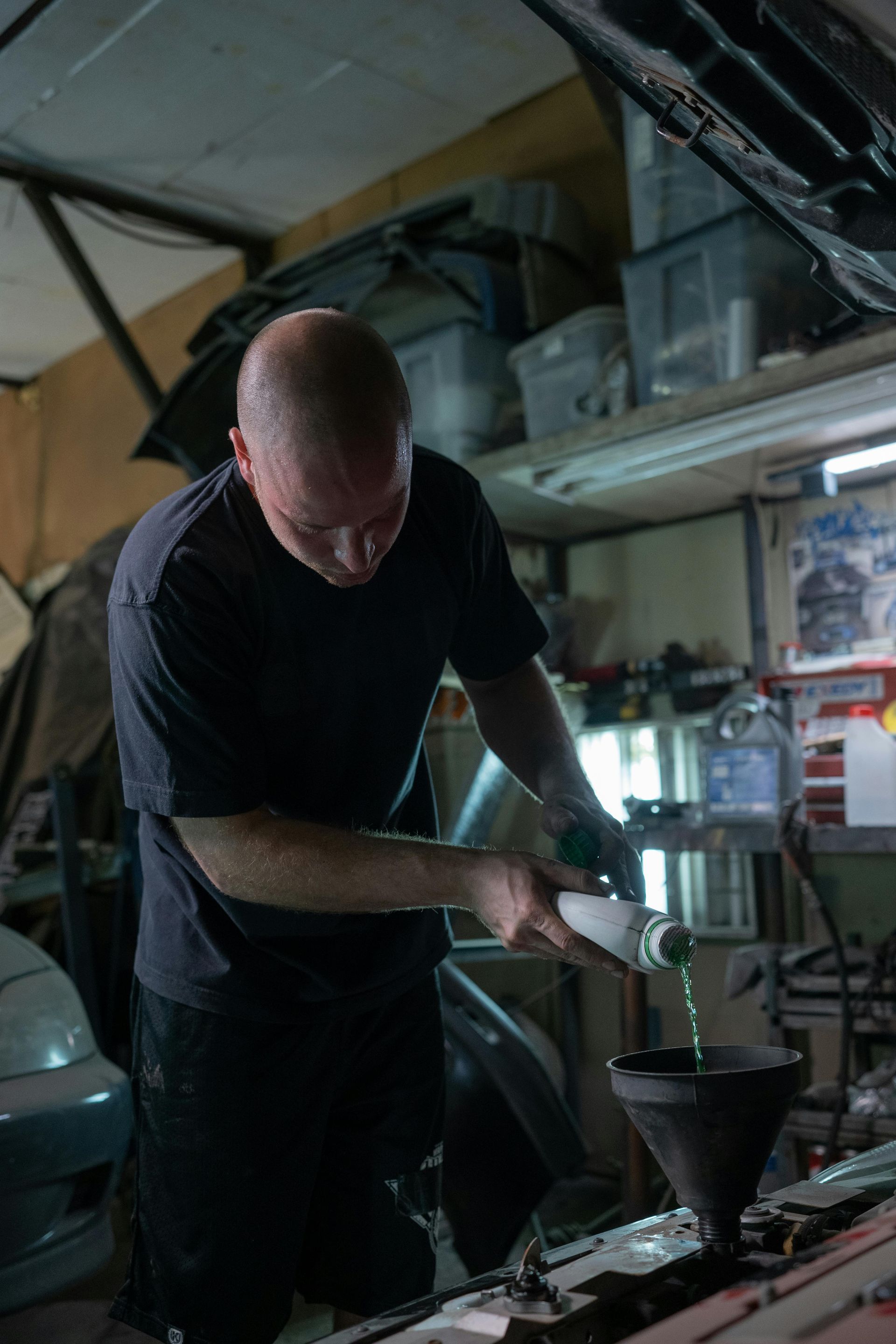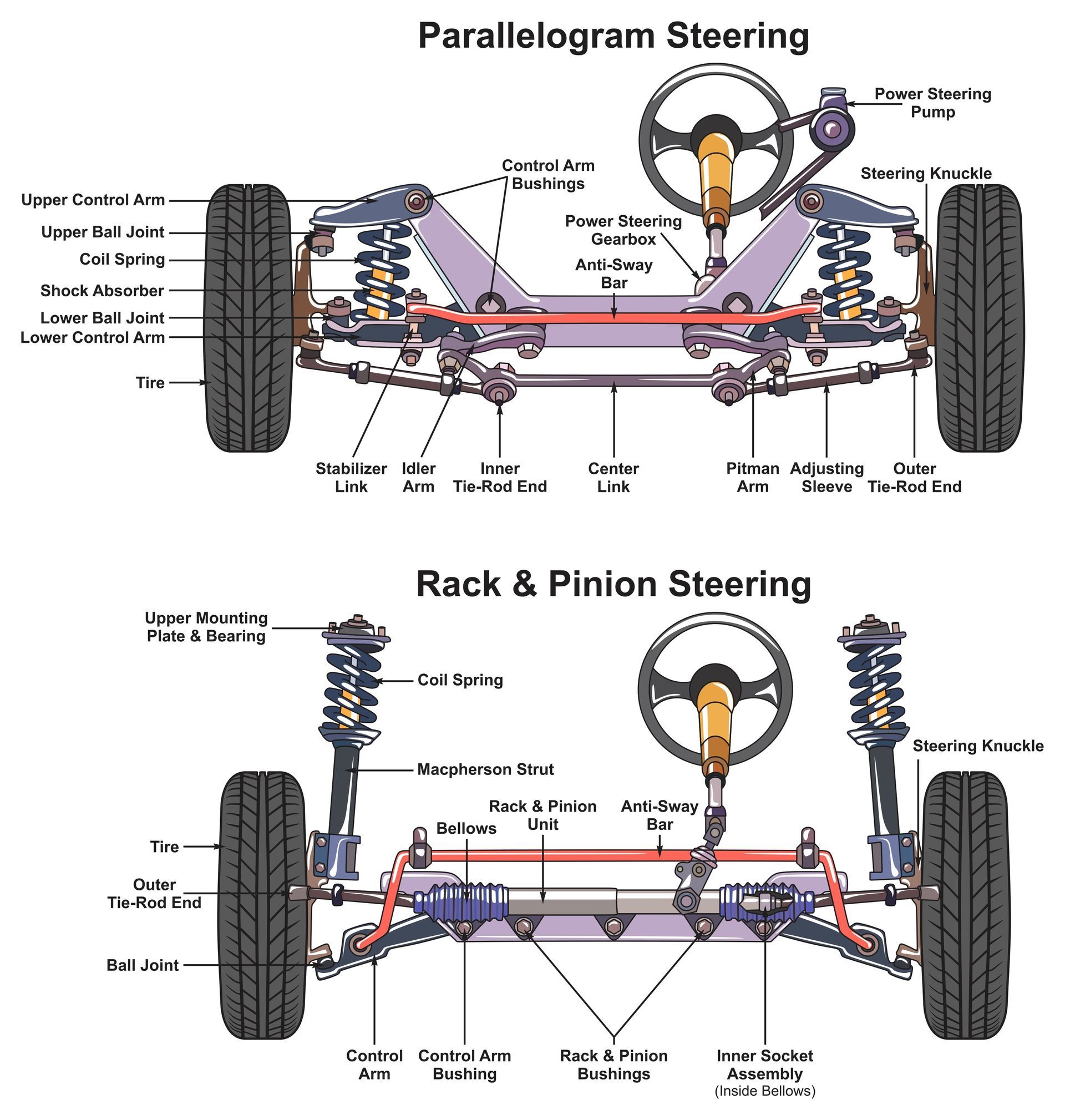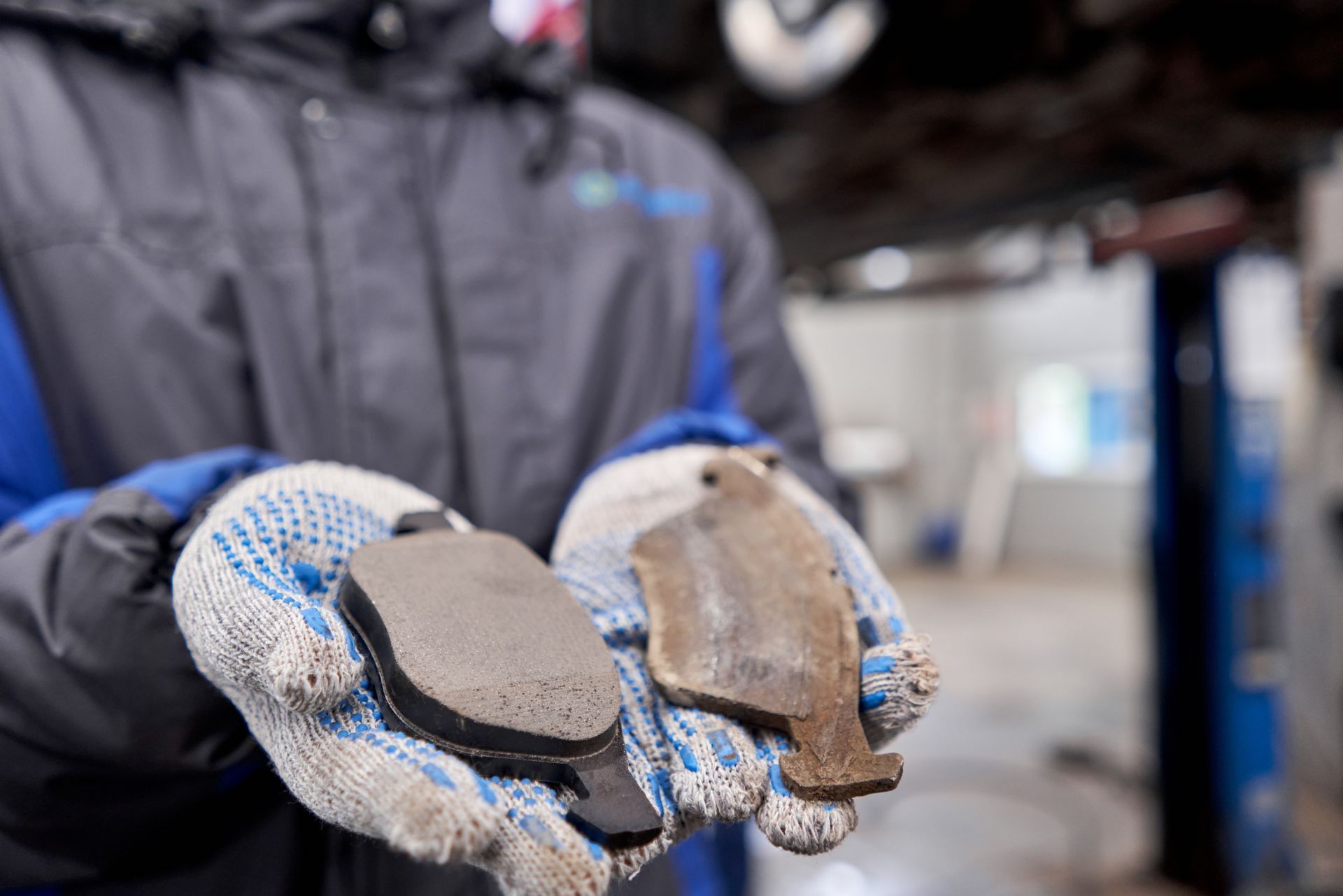When to Replace Your Brake Pads and Rotors
Brakes are one of the most critical safety features of any vehicle. Ensuring that your brake pads and rotors are in good condition is essential to maintaining your car's performance and safety. But how often should you change your brake pads and rotors? In this blog post, we’ll explore the factors that affect brake wear, signs that indicate it’s time for a change, and provide some general guidelines to help you keep your braking system in top shape.
Understanding Brake Pads and Rotors
Brake Pads are components of disc brakes used in automotive applications. They are steel backing plates with friction material bound to the surface that faces the disc brake rotor.
Brake Rotors (or discs) are what your car's brake pads press against to stop the wheels from spinning. Rotors are just as important as brake pads, and they come in various types and materials.
Factors Affecting Brake Wear
1. Driving Habits: Aggressive driving, including frequent hard braking and high-speed stops, can cause your brake pads and rotors to wear out faster. On the other hand, gentle and smooth braking can extend the lifespan of your brakes.
2. Vehicle Type: Larger, heavier vehicles like trucks and SUVs generally put more strain on brake components than smaller, lighter cars. This means that brake pads and rotors in larger vehicles may need to be replaced more frequently.
3. Brake Pad Material: The material of the brake pads can significantly impact their lifespan. Organic brake pads, for example, tend to wear out faster than ceramic or semi-metallic pads.
4. Driving Environment: Urban driving with lots of stop-and-go traffic wears out brakes quicker than highway driving. Additionally, driving in hilly or mountainous areas can put extra stress on your brakes, leading to more frequent replacements.
Signs You Need to Change Your Brake Pads and Rotors
1. Squealing or Squeaking Noises: If you hear a high-pitched squeal when you brake, it's likely a sign that your brake pads are worn out. Most brake pads have a wear indicator that emits a sound when it’s time for a replacement.
2. Grinding Sound: A grinding noise indicates that your brake pads are completely worn down, and the metal parts of the brake system are rubbing against each other. This can cause significant damage to your rotors and should be addressed immediately.
3. Vibrations When Braking: If you feel vibrations or a pulsating sensation when you apply the brakes, it could be a sign that your rotors are warped or unevenly worn.
4. Longer Stopping Distances: If your vehicle takes longer to come to a stop, it’s a clear indication that your brakes are not performing efficiently and need to be inspected.
5. Brake Warning Light: Modern vehicles come equipped with a brake warning light on the dashboard. If this light comes on, it’s essential to have your brakes checked as soon as possible.
General Guidelines for Replacing Brake Pads and Rotors
While the exact timing for replacing brake pads and rotors can vary, here are some general guidelines:
Brake Pads: On average, brake pads should be replaced every 25,000 to 70,000 miles. However, this range can vary based on the factors mentioned above. It’s best to have your brake pads inspected during regular maintenance to ensure they are in good condition.
Brake Rotors: Brake rotors typically last longer than brake pads, but they still need to be replaced periodically. On average, rotors should be replaced every 50,000 to 70,000 miles. Again, this can vary based on your driving habits and environment.
Maintenance Tips for Your Braking System
1. Regular Inspections: Have your brake system inspected regularly, ideally during every oil change. This allows you to catch any potential issues early and ensure your brakes are always in optimal condition.
2. Choose Quality Parts: When it’s time to replace your brake pads and rotors, opt for high-quality parts. They might be more expensive upfront, but they often last longer and perform better than cheaper alternatives.
3. Drive Mindfully: Adopting smoother driving habits can significantly extend the life of your brake components. Avoid hard braking and give yourself plenty of time to come to a stop.
4. Stay Informed: Keep an eye on your vehicle’s performance and don’t ignore any warning signs. If something doesn’t feel right with your brakes, have them checked out immediately.
Knowing when to replace your brake pads and rotors is crucial for maintaining the safety and performance of your vehicle. By understanding the factors that affect brake wear and recognizing the signs of worn-out brakes, you can ensure your braking system remains in top condition. Regular inspections and mindful driving can help extend the life of your brake components, saving you time and money in the long run.
At Elite Auto Experts, we are committed to keeping your vehicle safe and performing at its best. If you have any concerns about your brakes or need an inspection, don’t hesitate to contact us. Our experienced technicians are here to help you with all your automotive needs.
